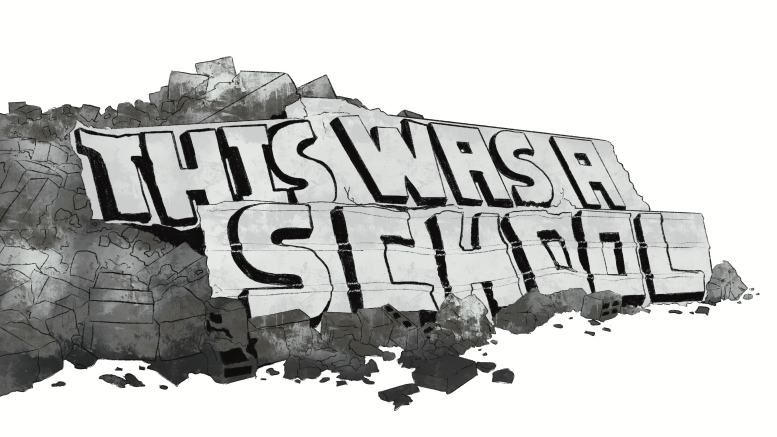I (DeFehr) have fond childhood memories of an elementary school teacher quieting her classroom saying, “a hush fell over the room.” All her students would respond, “hushhh” and a seemingly magical silence would fall.
A hush has also fallen on our university campuses, but it is brimming with tension, fear and pain. It feels unsafe to speak about Israel and Palestine for many students and faculty.
We consider safety on Winnipeg campuses in relation to safety in Palestinian universities. The Euro-Med Human Rights Monitor indicates that Israeli military bombardments have destroyed every university in the Gaza Strip. The Israeli army has “targeted academic, scientific, and intellectual figures,” killing 94 professors, hundreds of teachers and thousands of students since Oct. 7, 2023.
Israeli attacks on Palestinian schools have been well documented. The BADIL Resource Center for Palestinian Residency and Refugee Rights reported in their 2020 working paper — long before the genocide began — Israeli authorities targeted educational infrastructure as a means of delegitimizing Palestinian statehood.
Between 2020 and 2021 alone, there were “over 420 attacks on, or interferences to education” as reported by Track Attacks on Education.
The Palestinian grassroots anti-apartheid wall campaign, Stop the Wall, reported systematic attacks on schools, including instances of “terrorizing and detaining” teachers and students. It found “115 education-related violations by Israeli authorities or settlers were documented in the first half of 2022, [and] more than 8,000 students were affected.”
The history of Palestinian education cannot be divorced from the violent creation of the state of Israel in 1948. As Al Jazeera summarized in 2017, “between 1947 and 1949, at least 750,000 Palestinians from a 1.9 million population were made refugees beyond the borders of the state. Zionist forces had taken more than 78 per cent of historic Palestine, ethnically cleansed and destroyed about 530 villages and cities, and killed about 15,000 Palestinians in a series of mass atrocities.”
Many argue the Nakba never ended as Israeli settler-colonialism perpetually kills Palestinians and dispossesses them from their homelands.
Academics have drawn attention to the physical violence perpetrated on Palestinian universities and its impact on Canadian campuses. Ted Rutland at Concordia University remarked on X (formerly known as Twitter): “every day, another Palestinian university is destroyed, another group of Palestinian teachers, profs, writers, and journalists is slaughtered. And over here, it’s a less gruesome crackdown on anti-Zionist students and profs.”
Israeli nationalists smear critics of apartheid Israel as antisemitic, portraying the West as innocent. David Landy and his co-editors wrote about this phenomenon in the 2020 anthology Enforcing Silence: Academic Freedom, Palestine and the Criticism of Israel. Others silence the voices of the colonized with demands for a balanced approach that ensures that “the colonizer’s voice is continually heard, is continually present and intruding into the conversation.”
Rahab Ibrahim Abdulhadi, writing in the same volume, noted that even claims of concern for students can be used to stifle analysis of the Israeli settler-colonial project. Undoubtedly in our view, silence on Canadian campuses helped enable the present deadly silence on Palestinian campuses.
Attempts to silence university faculty have not succeeded. Faculty and students increasingly mobilize for Palestinian liberation. The Canadian Federation of Students, the largest and oldest national students’ union, has reaffirmed its solidarity with Palestine. The Faculty 4 Palestine Canada network includes over 600 faculty of all ranks from over 55 institutions across Canada. The network began this new year with a National Week of Action organized by scholars from across the country, presenting the “Palestine Prohibited” webinar on Jan. 19, 2024.
We value University of Manitoba professor Ben Baader’s call in the Manitoban for campus cultures allowing “respectful, nuanced and intellectually honest discussions.” We ask universities to make factual statements that respect Palestinian life. We ask the Uniter to stop limiting use of the terms Zionism and anti-Zionism so that writers can fully participate in political discussions about Israel’s founding principles, policies and practices.
The transnational grassroots Palestinian Youth Movement (PYM) has emerged from 75 years of Palestinian resistance against imperialism and Zionist ethnic cleansing. The Palestinian youth of PYM assert that “education must be wielded in service of struggle […] study and struggle are intimately tied to one another.”
With unrelenting care for every member of our learning communities, we must now, in our collective grief and outrage, lift the hush that has fallen until Palestine is free.
Jan DeFehr and Carla Manfredi are associate professors at the University of Winnipeg, and write as members of the Manitoba chapter of Faculty 4 Palestine.



